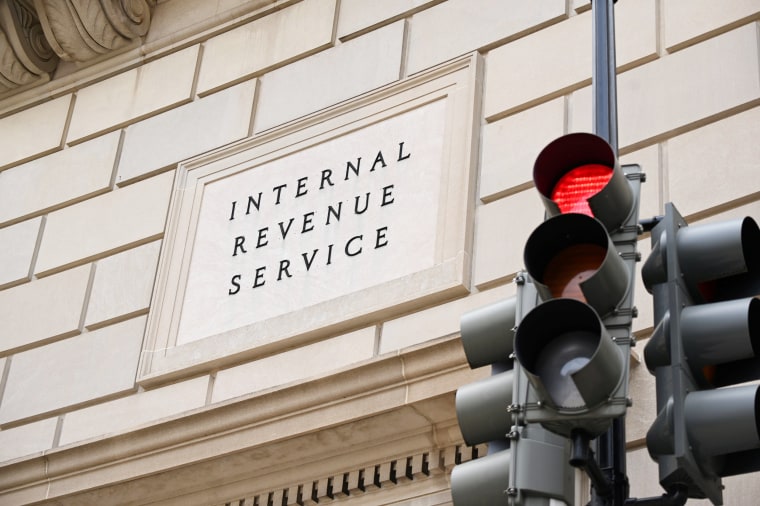The first sign of trouble came two weeks ago, when Sen. Chuck Grassley (R-Iowa) started railing against President Joe Biden's IRS plan. Politico reported yesterday that the Iowa Republican isn't alone.
Add another obstacle to the growing list President Joe Biden faces in his negotiations over his massive spending plans: mounting opposition to one of the ways to pay for his proposal — growing the IRS. Conservative groups have launched a campaign of TV ads, social media messages and emails to supporters criticizing the proposal to hire nearly 87,000 new IRS workers over the next decade to collect money from tax cheats.
At first blush, this may seem like an obvious dog-bites-man story: A Democratic White House wants to strengthen the Internal Revenue Service, so the White House's opponents on the right are complaining. There doesn't appear to be anything especially surprising about any of this.
But just below the surface, there's a little more to this. As we've discussed, Biden's plan for the IRS is the kind of revenue-generating idea that conservatives should be comfortable with.
When it comes to financing the president's domestic agenda, there's a predictable fight underway about taxes -- or more specifically, tax rates. Democrats want to ask more from the wealthy and big corporations, while Republicans want to shield the rich and powerful while pretending to be a working-class party.
But Biden's IRS plan is a little different.
The service has been gradually undermined for years, which in turn has made it far more difficult for the agency to be aggressive in pursuing possible tax cheats, which in turn has meant less revenue for policy priorities. Spending more on the IRS would almost certainly mean a lot more money for the treasury, even with existing tax rates.
As Catherine Rampell explained in a recent column, "How do you raise tax revenue without raising taxes? By increasing enforcement of existing tax law and making sure every penny already owed gets paid."
By some measures, strengthening the IRS could generate an additional $700 billion in tax revenue over the next decade -- not by raising taxes, but simply by enforcing the laws already on the books. For the "law and order" party, this shouldn't be too heavy a lift.
In effect, White House officials are telling Republicans, "We have an idea to raise federal revenue, to help pay for key priorities, without raising tax rates."
To which Republicans are effectively telling the White House, "We're against that, too."
Indeed, as Eric Levitz noted, Donald Trump's former legislative director, Marc Short, is helping spearhead the effort against efforts to bolster the IRS, and his group's message is far from subtle:
The 30-second spot shows an army of shadowy IRS agents — all apparently clones of the same bespectacled man — stalking anxious middle-class taxpayers with surveillance drones. This is "the new America," the voice-over warns, "where congressional Democrats want to defund the police, and Biden wants to add thousands of IRS agents." To prevent their nation from becoming a dystopian hellscape in which criminals murder with impunity — while IRS agents arrest small-business owners for math errors — viewers must call their representatives now.
There is a degree of irony to the message. The anti-IRS group, called the Coalition to Protect American Workers, is falsely accusing congressional Democrats of wanting to defund the police, while simultaneously urging Congress to reject plans to strengthen the agency that effectively serves as the tax police.
In other words, these conservatives want to be seen as allies of law enforcement, except for those who enforce tax laws. The right would have Americans believe tax cheats aren't a problem, but efforts to catch tax cheats are a problem.
So let's take stock. There's broad agreement for the need to invest in U.S. infrastructure. Can we inch the corporate tax rate higher? Republicans say no. Can we ask more of millionaires and billionaires? Republicans say no. Can we strengthen the IRS to enforce existing tax laws? Republicans are saying no to that, too.
There are some who've suggested a bipartisan infrastructure package is still a possibility. My expectations are quite a bit lower.

